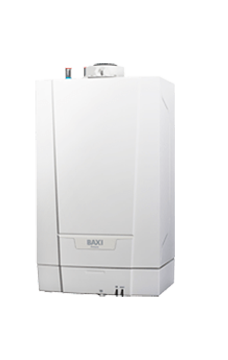Boilers are the unsung heroes of many homes across the United Kingdom, quietly providing warmth and hot water essential for daily living. With a plethora of options available on the market, choosing the right boiler can be a daunting task for homeowners. From traditional combi boilers to cutting-edge biomass systems, the diversity of choices reflects the evolving landscape of heating technology and consumer preferences. In this article, we’ll delve into the different types of boilers available in the UK, highlighting their features, advantages, and considerations.
1. Combi Boilers:
- Combining both central heating and hot water provision in one compact unit, combi boilers are a popular choice for smaller homes and apartments.
- They heat water on demand, eliminating the need for a separate hot water cylinder or storage tank, thus saving space.
- Combi boilers are highly efficient and provide instant hot water, making them ideal for households with limited space and a need for convenience.
- However, they may not be suitable for larger properties with multiple bathrooms or high hot water demands simultaneously.
2. Conventional Boilers (Regular or Heat-Only):
- Also known as regular or heat-only boilers, conventional boilers consist of a boiler unit, hot water cylinder, and cold water storage tank.
- They are well-suited for larger homes with high hot water demand and multiple bathrooms, providing a constant supply of hot water to various outlets simultaneously.
- Conventional boilers are compatible with existing heating systems, making them a popular choice for replacement installations.
- However, they require more space for installation due to the additional components and are less energy-efficient compared to combi boilers.
3. System Boilers:
- System boilers incorporate a built-in expansion vessel, pump, and expansion vessel, streamlining installation and reducing the need for additional components.
- They are compatible with sealed heating systems, making them easy to install and maintain.
- System boilers are well-suited for properties with multiple bathrooms and moderate to high hot water demand, offering a balance between convenience and efficiency.
- While they require space for a hot water cylinder, they eliminate the need for a cold water storage tank, making them suitable for properties with limited loft space.
4. Biomass Boilers:
- Biomass boilers utilize organic materials such as wood pellets, chips, or logs as fuel sources, offering a renewable and sustainable heating solution.
- They are particularly well-suited for rural properties with access to biomass fuel sources, providing an eco-friendly alternative to traditional fossil fuel boilers.
- Biomass boilers are eligible for government incentives such as the Renewable Heat Incentive (RHI), offering financial support to homeowners investing in renewable heating systems.
- However, biomass boilers require ample storage space for fuel and regular maintenance to ensure optimal performance and efficiency.
5. Heat Pumps:
- Heat pumps extract heat from the air, ground, or water sources and convert it into usable heat for space heating and hot water.
- They are highly efficient and environmentally friendly, offering lower running costs and reduced carbon emissions compared to conventional boilers.
- Heat pumps are available in various configurations, including air source, ground source, and water source heat pumps, catering to different property types and locations.
- While the initial installation cost of heat pumps may be higher than traditional boilers, they offer long-term savings and contribute to reducing dependency on fossil fuels.
6. Electric Boilers:
- Electric boilers use electricity to heat water and are suitable for properties without access to gas or where space is limited for installation.
- They are compact, silent, and easy to install, making them an attractive option for apartments, small homes, and off-grid properties.
- Electric boilers are highly efficient and require minimal maintenance, offering a reliable and convenient heating solution.
- However, electricity tariffs can be higher than gas prices, resulting in potentially higher running costs over time.
Choosing the right boiler for your home involves careful consideration of factors such as property size, hot water demand, energy efficiency, and fuel availability. Consulting with heating professionals and conducting thorough research can help homeowners make informed decisions tailored to their specific needs and preferences. Whether opting for a traditional combi boiler or embracing renewable technology with biomass or heat pumps, investing in an efficient and suitable heating system is key to ensuring comfort, convenience, and sustainability for years to come.

